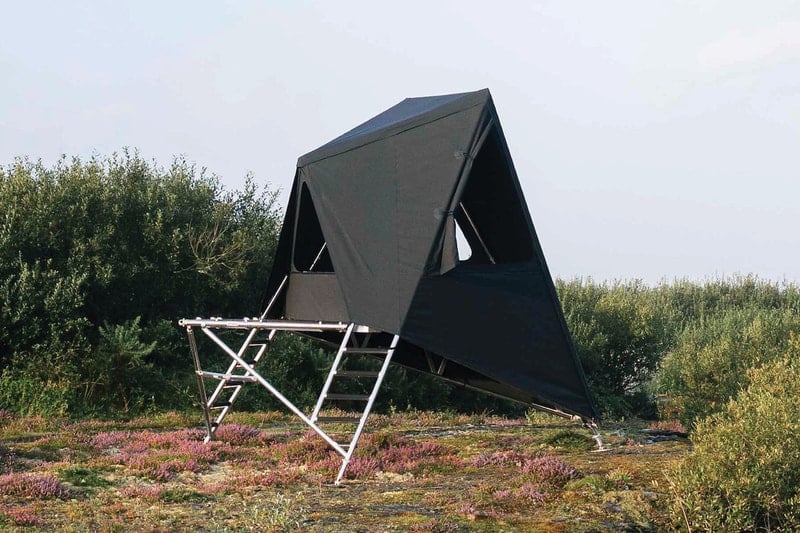Originally commissioned for the hospitality company Kudhva, New British Design's K-Tent offers a camping solution that is aesthetically refined, suitable for diverse terrains, and most importantly, eco-conscious.
The final result of the collaboration, which drew inspiration from Kudhva's modern cabins, echoes the visual language of the modules used for lunar landings like the Apollo 11 mission. Key to the shared resemblance is the K-tent's recycled aluminum structure, suspending the canvas dwelling in the air via tripod legs.
Adjustable features on the legs allow the tents to be installed on uneven, multi-terrain surfaces like those at Kudhva's Cornwall landscape. Unlike traditional grounded tents, the elevated interior benefits the local environment by leaving minimal interference with its surroundings.
Efficient details like the black canvas and the hexagonal aluminum frame encourage heat maintenance and circulation. To help users get the most out of the local surroundings, two windows join the main door to allow generous views of the landscape during their stay.
A growing current in design has turned its attention toward the ephemeral design opportunities in the outdoors. Major firms like Bjarke Ingels have also dipped their toes into the innovative potential of outdoor design. Similarly premised on eco-friendly hospitality, BIG partnered with Nokken to produce a more robust two-story A-frame tent called the NKN Softshell.
Private users and businesses can inquire about New British Design's K-tent today at the official website.
































